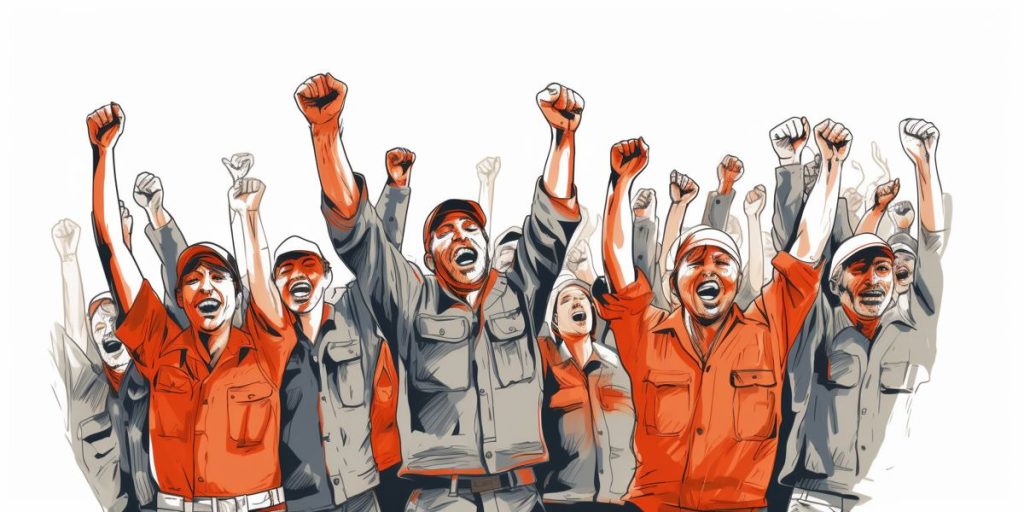The government is nearing a decision on revising the minimum wage law, which is expected to benefit around 25,000 low-paid workers. Labour Minister Yiannis Panayiotou has indicated that discussions are coming to a close, with an announcement expected next week, as the government seeks to balance economic fairness with the demands of the economy.
What is the government’s decision on the minimum wage?
The government is close to finalizing a decision on revising the minimum wage law, which is expected to increase the earnings of about 25,000 low-paid workers. Labour Minister Yiannis Panayiotou indicated that discussions are nearing an end and an announcement is anticipated next week. The decision aims to balance economic fairness with the demands of the economy.
A Step Towards Economic Fairness
As anticipation builds among the workforce, the government appears to be on the cusp of enacting changes to the minimum wage law—a move poised to bolster the earnings of approximately 25,000 low-paid workers. Labour Minister Yiannis Panayiotou, in a recent statement, signaled that the conclusion of ongoing discussions is imminent. The forthcoming days are critical as stakeholders seek to narrow their differences, which, according to Panayiotou, are less significant than presumed.
The minister refrained from revealing precise figures but conveyed a general agreement for an uptick in the minimum wage, sparking a blend of hope and anxiety among workers and businesses alike. The discord primarily revolves around the magnitude of the proposed augmentation. The resolution of these talks is highly anticipated, with expectations set for a government announcement next week.
Aligning Labour with Migration
Beyond the minimum wage, the advisory board’s dialogue extended to the integration of third-country nationals into the labour force, particularly international students. The intertwining of migration trends with labour market demands was on the agenda, although Panayiotou did not delve into specifics at this juncture. This topic underscores the broader challenges facing a global economy where the mobility of workers and cross-border education play increasingly pivotal roles.
The labour advisory board is scheduled for additional sessions early next week, aiming to finalise their stance on the minimum wage. Panayiotou acknowledged the efforts of his predecessors, who laid the groundwork for this vital discussion, suggesting that an elevated minimum wage could be achieved without detriment to the economic climate.
Balancing Views for a Collective Good
Amidst the debate, the minister made it clear that while the decision may not wholly satisfy every stakeholder, it would be crafted with fairness and balance. Unions and companies have weighed in, each underlining different statistical aspects, from the rising cost of living to surging operational expenses. Despite these diverging positions, the government’s approach remains steady—striving for a decision that aligns with societal demands and the economy’s capabilities.
The promise is a decision that would favorably impact the lives of 20,000 to 25,000 individuals who currently grapple with low wages. The intersection of economic policy and public welfare is delicate, yet the minister’s reassurances suggest that a conscientious, equitable resolution is within reach. As the nation awaits, the hope is for a policy that not only addresses immediate financial concerns but also fortifies the foundation for sustainable economic growth.
What is the government’s decision on the minimum wage?
The government is close to finalizing a decision on revising the minimum wage law, which is expected to increase the earnings of about 25,000 low-paid workers. Labour Minister Yiannis Panayiotou indicated that discussions are nearing an end and an announcement is anticipated next week. The decision aims to balance economic fairness with the demands of the economy.
How will the minimum wage revision benefit low-paid workers?
The minimum wage revision is expected to benefit approximately 25,000 low-paid workers by increasing their earnings. The exact details of the revision have not been revealed yet, but it is aimed at addressing economic fairness and improving the financial situation of these workers.
What other topics were discussed by the advisory board?
In addition to the minimum wage revision, the advisory board also discussed the integration of third-country nationals into the labor force, particularly international students. The board explored the intersection of migration trends with labor market demands, highlighting the challenges faced in a global economy where worker mobility and cross-border education play significant roles.
How is the government balancing different viewpoints on the minimum wage revision?
The government acknowledges that different stakeholders have varying viewpoints on the minimum wage revision. Unions and companies have highlighted different statistical aspects, such as the rising cost of living and operational expenses. However, the government is committed to crafting a decision that is fair and balanced, taking into consideration societal demands and the economy’s capabilities. The aim is to positively impact the lives of 20,000 to 25,000 individuals while also fostering sustainable economic growth.

